Sustainable Microfinance - Balanced Scorecard's added value for ...
Sustainable Microfinance - Balanced Scorecard's added value for ...
Sustainable Microfinance - Balanced Scorecard's added value for ...
You also want an ePaper? Increase the reach of your titles
YUMPU automatically turns print PDFs into web optimized ePapers that Google loves.
6.2.9. Network & Business Development Support<br />
See paragraph 6.2.6 and 6.2.7<br />
6.2.10. Reason, Drive and Contribution<br />
Empirical findings identified three questions as the starting point of the entrepreneur.<br />
The ‘what’ question has been incorporated in the social dimension (see 6.2.2). For<br />
the ‘why’ question, the proposition is that it should primarily be addressed by the<br />
business advisor and secondly be incorporated in the entrepreneurial dimension. For<br />
the ‘where’ question theory states that; in the business sense, per<strong>for</strong>mance refers to<br />
the accomplishment of the business’ strategies (actions) in order to achieve the<br />
objectives (obligations) established. The objective may be a targeted level of<br />
profitability (key to survival) or an above average or improved return on investment<br />
(required <strong>for</strong> growth). Per<strong>for</strong>mance measurements quantify action in terms of their<br />
efficiencies and effectiveness, which represent the degree to which the obligations of<br />
the firm are fulfilled (Neely et al., 1995). As with many business models since<br />
Friedman, the emphasis is placed here on the financial aspect. Empirical findings<br />
suggest not to determine the per<strong>for</strong>mance of a business based on its financial return,<br />
but to focus on aspects such as satisfaction and measure relevant returns. The best<br />
way to illustrate these points is by quoting Bullens (2010);<br />
‘Why do we make the financial perspective so dominant? Say you are a<br />
customer at Albert Heijn and you need to pay twice as much <strong>for</strong> your product,<br />
but you are still satisfied. Does Albert Heijn have a problem then?’<br />
‘Why is that financial perspective then so important? I'll give you the<br />
answer. Everybody thinks it is important, because the paradigm we have<br />
created, the financial model dominants <strong>for</strong> the perception whether we should<br />
be satisfied. At the FNV federation, they think that when they arrange a salary<br />
increase <strong>for</strong> the people, members of the FNV, that they will be satisfied. That<br />
is their stand while negotiating. Same <strong>for</strong> interest <strong>for</strong> shareholders,<br />
companies argue that when shareholders have a higher return they will be<br />
satisfied. That is the dominant thinking. Why not ask are you satisfied? We<br />
developed those financial models when they were needed. By that time we did<br />
not have enough calculation capacity. But do we still need it?’<br />
Elmar Hoogendoorn 74<br />
<strong>Sustainable</strong> <strong>Microfinance</strong>



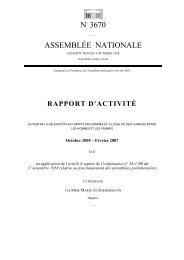

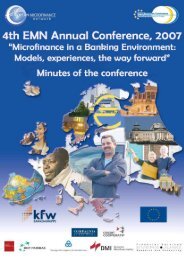
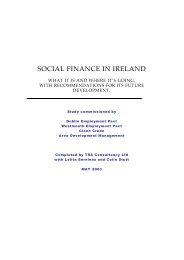

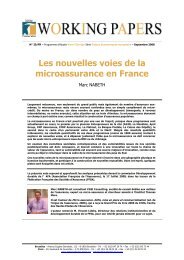


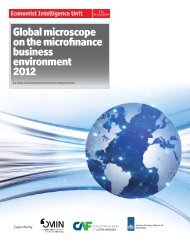
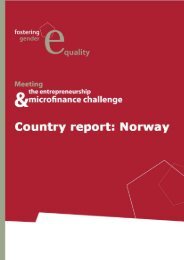

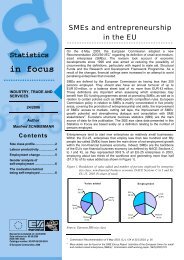
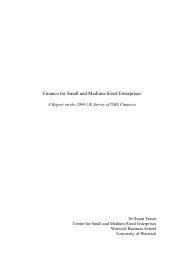
![Joint Report on Social Protection and Social Inclusion [2005]](https://img.yumpu.com/19580638/1/190x132/joint-report-on-social-protection-and-social-inclusion-2005.jpg?quality=85)
